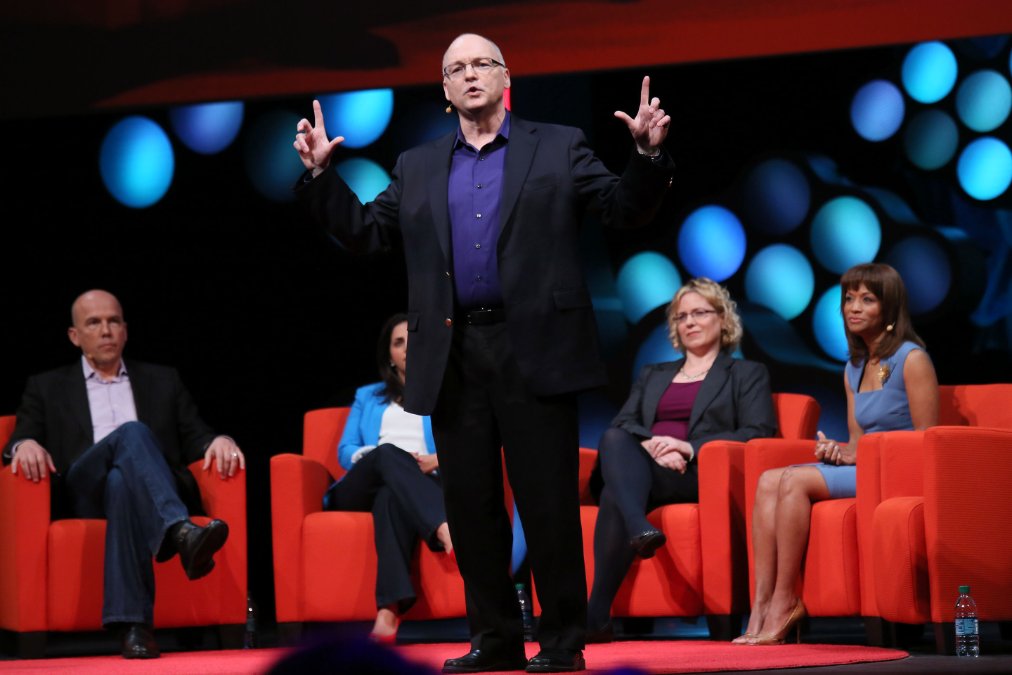Your biggest strength–the quality that makes you stand out from other people–can also be your greatest downfall. We all have an underlying worldview that determines the way we approach all of the challenges we face. Some people are big-picture thinkers. Others fixate on particulars. Some people are pragmatic and by-the-book when it comes to solving problems. Others are dreamers who go outside the box. Some people are goal-oriented, driven by the thrill of competition. Others are patient listeners, inspired by a co-operative community that they build around them. We call this fundamental perspective your core competency or dominant logic.
The problem is that our dominant logics overpower all other points of view. Each of us sees the world in such a prescriptive way that it’s hard–indeed, impossible–to consider anything without being overwhelmed by our own preferred method of thinking. Our dominant logics are so intense that we lose the ability to think outside of them. They give us blind spots. We become prisoners of our own ideology. Left by themselves, the pragmatic thinkers become bureaucrats. The big-picture thinkers become chaotic. The goal-oriented thinkers become control freaks. The patient thinkers become irrationally enthusiastic.
This is one of the biggest obstacles to overcome in our current political situation, where stubborn leaders and decision-makers, paralyzed by their dominant logics, unwittingly block progress. Take a look at the political schisms and ideological battles happening around us, stalling forward movement and change. When we’re too committed to our own dominant logics, we start thinking irrationally.
In order to achieve an innovative mindset, we need to overcome our own dominant logics. The only way to fully understand something is to look at it from multiple viewpoints. This is about communicating with people who are unlike us, understanding that no single outlook is better than another. We are most likely to create something new when we put diverse outlooks together.
I’m not suggesting that we all abandon our dominant logic and become different kinds of thinkers. Rather, the goal is to embrace our dominant logic while we complement it by surrounding ourselves with thinkers of all kinds.
The best teams are like bands of superheroes: each member acknowledges and makes use of his or her gifts and talents but they don’t let those superpowers limit them. They use them at the appropriate moments and then stand back and let their partners take over at other moments.
Do things that make you feel uncomfortable. Talk to people with whom you have nothing in common. Remember that the ideal solutions to the most complicated problems will never involve just one mode of thinking. They always require a cross-boundary, interdisciplinary approach that takes advantage of multiple–and often seemingly contradictory–mindsets and ranges of skills.
Innovation is not about alignment. It is about constructive conflict–positive tension. What happens when pragmatic thinkers work with big-picture thinkers? What happens when the quick thinkers meet the patient thinkers? This is exactly how and where innovation happens: you need to surround yourself with people who are not like you. Who knows, they just might be superheroes with their own special powers.

Jeff DeGraff is the Dean of Innovation – an author, speaker, and advisor to Fortune 500 companies and mission-driven organizations worldwide. He’s the CEO and Founder of Innovatrium, Founder of Intellectual Edge Alliance, and Clinical Professor of Management and Organizations at the Ross School of Business at the University of Michigan. Jeff co-created the Competing Values Framework and developed the Innovation Code and Innovation Genome methodologies which provide organizations with practical tools to reconcile competing priorities and drive breakthrough performance. His mission is the democratization of innovation: making systematic innovation accessible to everyone, everywhere, every day.
